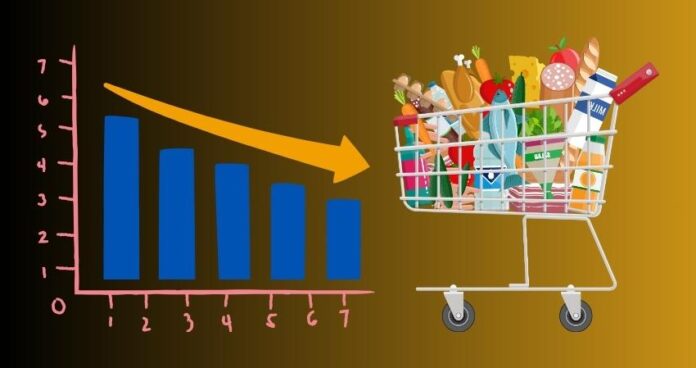The Sensitive Price Indicator (SPI), which gauges weekly inflation for combined consumption groups in Pakistan, fell by 0.29% during the week ending May 22, according to data released by the Pakistan Bureau of Statistics (PBS) on Friday.
The SPI was recorded at 312.34 points, down from 313.24 points the previous week. However, compared to the same period last year, the SPI showed a 1.35% increase, indicating continued upward pressure on prices year-on-year.
The SPI, based on the 2015-16 index and covering 17 urban centres and 51 essential items, reflects price movements across all income levels. Among the different consumption groups, the lowest bracket, with monthly expenditures up to Rs 17,732, experienced a 0.26% decline in SPI, falling to 300.18 points from 300.97 points a week earlier.
Other brackets also recorded marginal decreases: 0.27% for Rs 17,732–22,888, 0.26% for Rs 22,889–29,517, 0.28% for Rs 29,518–44,175, and 0.30% for those above Rs 44,175.
Out of 51 tracked items, the prices of 13 items increased, 14 items fell, and 24 remained unchanged. Weekly price declines were most notable for chicken, which fell by 7.26%, onions by 5.43%, and garlic by 2.71%.
Other commodities showing a drop included LPG, potatoes, mustard oil, diesel, pulse masoor, cooking oil, IRRI-6/9 rice, firewood, vegetable ghee (2.5kg), and sugar.
Conversely, significant weekly price increases were recorded for tomatoes (up 12.01%), eggs (8.16%), and gur (1.50%). Other rising items included bananas, various pulses, wheat flour, powdered milk, basmati broken rice, mutton, beef, and energy savers.
On a year-on-year basis, items with the most substantial price hikes included ladies’ sandals, chicken, pulse moong, powdered milk, bananas, sugar, and eggs, all recording double-digit increases. Meanwhile, items like onions, potatoes, garlic, electricity charges for Q1, and several staple food products such as tomatoes, wheat flour, and various pulses showed significant price declines over the same period.























